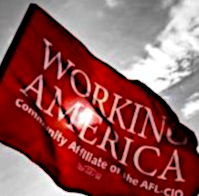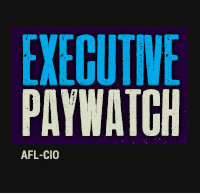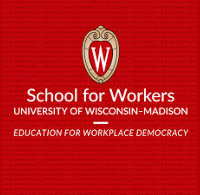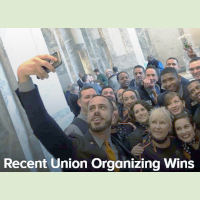In a historic win in December, baristas in Buffalo voted to make their Starbucks the first of more than 9,000 corporate-operated Starbucks in the US to unionize. Since then, 143 other Starbucks have unionized and workers at 120 other locations have petitioned for union elections. In another historic victory, a vote count on 1 April […]
Read More →Why is Starbucks’ union drive is so successful while Amazon’s got stuck in the mud…
on July 13, 2022in News, Western WI Newstags: afl-cio, Amazon, anti-union, progressive employees, retail, starbucks', sucessful, union, union drive, Wholesale and Department Store Union, Workers United

The Senate Cannot Be the Graveyard for Labor Law Reform Again
on June 7, 2021in News, Western WI Newstags: afl-cio, Amazon, America’s labor federation, benefits, collective bargaining, family-sustaining wages, filibuster, H.R.842 - Protecting the Right to Organize Act of 2021, HR 842, hyperpartisan, Jeff Merkley, Mitch McConnell, National Labor Relations Board, NLRB, Oregon, PRO Act), pro-worker, Protecting the Right to Organize Act of 2021, richard trumka, safe workplaces, unions, US Senator, Workers First Agenda, wwaflcio
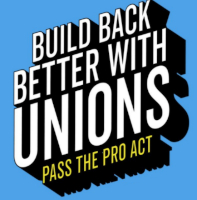
By Richard Trumka & US Senator Jeff Merkley For months, the eyes of our nation were transfixed on a small suburb near Birmingham, Alabama Warehouse workers authorized the largest union election overseen by the National Labor Relations Board since the beginning of the COVID-19 pandemic. The name of their employer is on over 5 billion […]
Read More →Amazon won the Alabama union fight. But don’t mourn – organize
on April 19, 2021in WWAFLCIO Archived Newstags: afl-cio, Amazon, comment, E-commerce, green eggs and ham, Jeff Bezos, President Biden, PRO Act), pro-labor groups, Protecting the Right to Organize Act, Retail industry, rwdsu, tiktok, union busting, US politics, wwaflcio
By Indigo Olivier The entire country has just seen the lengths corporations will go to prevent workers from unionizing. ‘More than anything, this defeat stressed the importance of passing the Protecting the Right to Organize Act (PRO Act) which would ban captive audience meetings, severely limit corporate interference, invalidate right-to-work legislation and strengthen collective bargaining […]
Read More →



